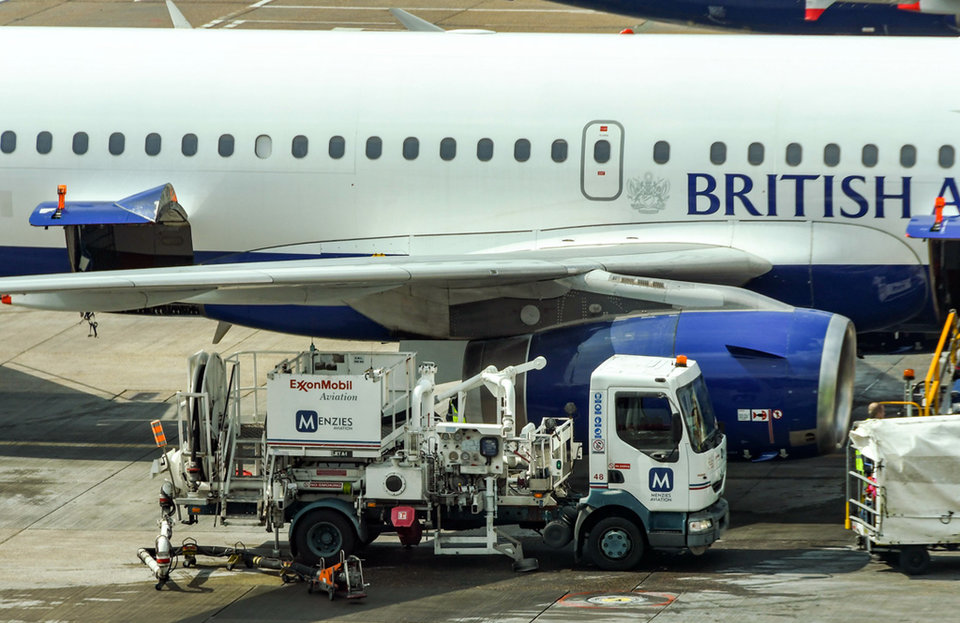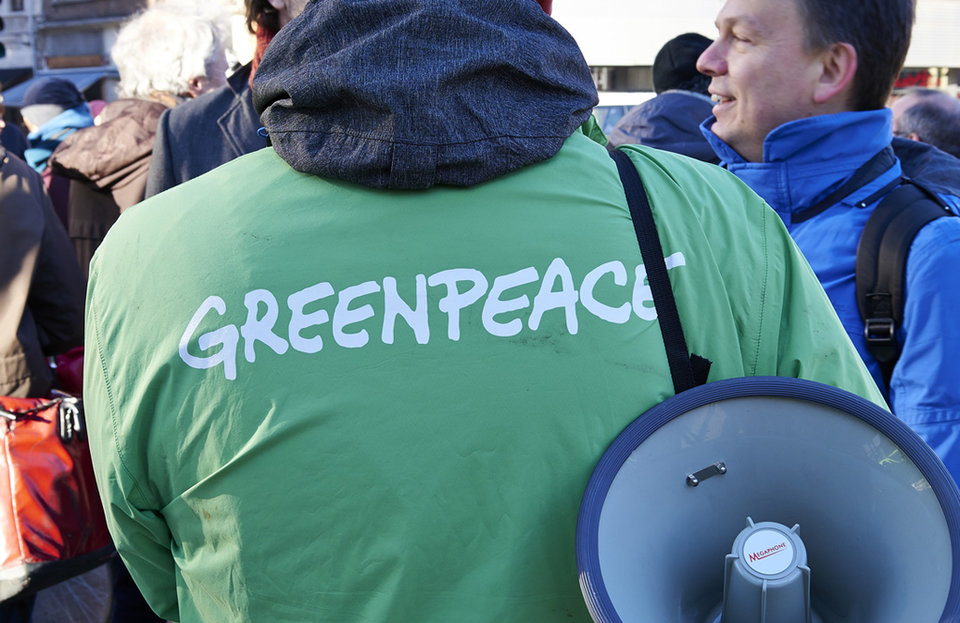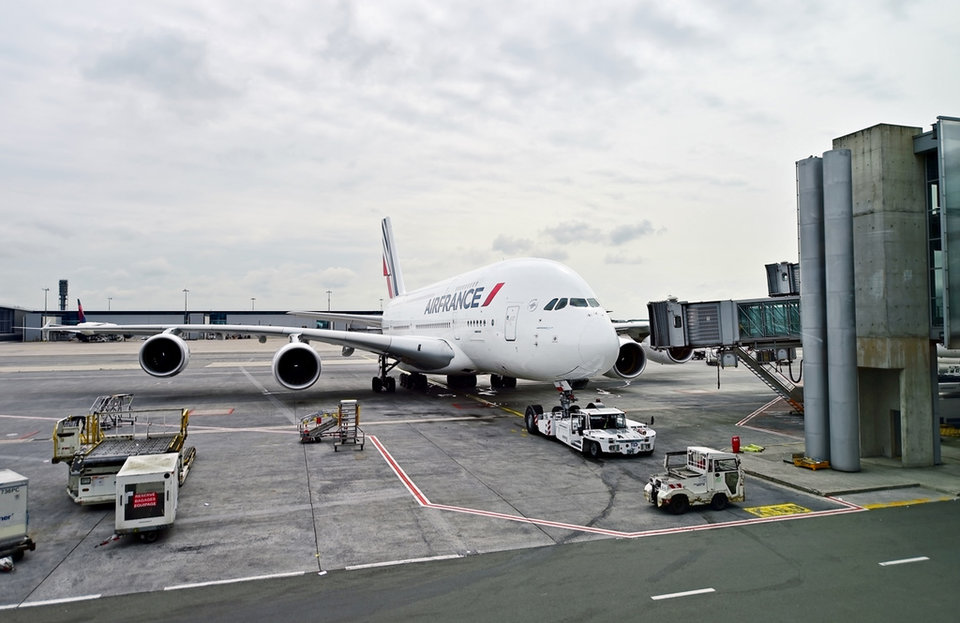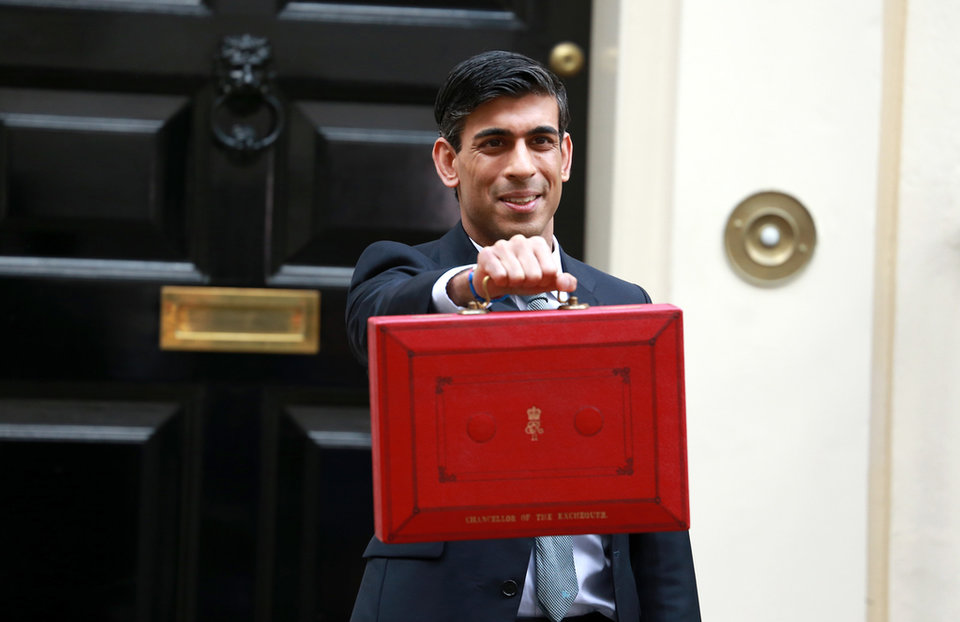Environment
Inside the UK’s ‘roadmap’ for sustainable aviation
A coalition of British aviation stakeholders recently published a ‘Decarbonisation Roadmap’ that sets out key steps for the industry to become carbon neutral by 2050. The plan is ambitious, but how and where will it get funding, and to what extent does the coronavirus pandemic stand in its way? Adele Berti highlights five talking points from the scheme.
In early February, the UK Sustainable Aviation coalition announced plans to achieve carbon neutrality by 2050, in what was welcomed as a highly ambitious plan. Little did the coalition know that the coronavirus pandemic heading to Europe would improve air quality across the world at the expense of the industry's commercial success.
With lockdowns being enforced globally and air traffic figures dramatically decreasing, several studies detected significant drops in pollution in China and Italy, two of the countries worst hit by the coronavirus outbreak earlier in 2020. Similar conditions have now been seen in the UK, where aviation is responsible for about 7% of the country’s carbon emissions.
However, as beneficial as this situation can be for the environment, when things go back to normal and thousands of aircraft repopulate the skies, there will be plenty more work to do for the industry to achieve its targets.
The coalition’s February ‘Decarbonisation Road-Map: A Path to Net Zero’ remains a first in the industry and a potentially pioneering plan, and should therefore be subject to scrutiny. Below are five talking points about the strategy.
Image:
The roadmap in a nutshell: how will carbon neutrality be achieved?
Before the Covid-19 outbreak, industry forecasts showed a 70% increase in passenger numbers should be expected over the next three decades.
According to research from the coalition, accommodating this demand without damaging the environment will require cutting CO2 emissions by some 30 million tonnes every year and eventually becoming carbon neutral in 2050.
As per the coalition’s ‘Decarbonisation Roadmap’, this can be achieved through five separate initiatives. These are all included in the paper published in February, which was released together with the Sustainable Aviation Fuels Road-Map, a second document that focuses on the role that sustainable aviation fuels could play to reach carbon neutrality.
According to the document, non-polluting fuels could help reduce emissions by 30% - or 14 million tonnes of CO2 - a year by 2050. In the long term, their development could help support the UK’s claim to become a leader in sustainable aviation fuels, which would be used for 32% of the country’s demand for aviation fuel by 2050.
Fuels aside, the coalition believes that carbon offsetting will account for 25.8 million tonnes of CO2 out of 71.1 million tonnes the sector will generate every year as passenger numbers grow.
The group also plans to save up to 23.5 million tonnes of CO2 annually by investing in aircraft and engine efficiency improvements, therefore boosting the development of electric aircraft and efficient gas-turbine engines.
In addition, some 3.1 million tonnes could be saved via improvements of the British airspace, which the country is currently redesigning and modernising. Finally, the coalition plans on saving 4.3 million tonnes of CO2 through the introduction of a carbon price.

A fuel truck alongside a British Airways jet at Gatwick Airport. Image: Ceri Breeze / Shutterstock.com
The problem with carbon offsetting
Despite receiving substantial appraisal among industry stakeholders, the Decarbonisation Roadmap failed to gain support from a number of environmental campaigners. Among them, Greenpeace was quick to label the strategy “a greenwash”.
Greenpeace UK executive director John Sauven commented: “This whole strategy is a flight of fancy. Carbon offsetting is simply an excuse to carry on with business as usual while shifting the responsibility to cut emissions to someone else, somewhere else, and some other time.”
The main reason for Greenpeace and many other groups’ scepticism is carbon offsetting, the most substantial part of the strategy and a move that will help cut down over a third of aviation’s future projected emissions.
A practice that has long been at the centre of controversy within the climate change debate, carbon offsetting typically involves initiatives like tree planting or solar power installations to counterbalance emissions produced by aviation.
Not everyone is on-board with it. Max Wakefield, director of campaigns for climate action group Possible, told the Guardian in February: “Offsetting’s real power is to provide not a climate solution, but a social licence to continue with business as usual. In this case, it provides airlines with an excuse to plan for a 70% increase in passenger numbers.”

Greenpeace have been sceptical of carbon offsetting. Image: CapturePB / Shutterstock.com
A word on taxation
Another point of controversy is the idea of pricing carbon to reduce demand for flying. The concept is not new, but rather something many are considering putting in place to dissuade people from relying on air travel.
Similar forms of taxation are currently being considered in France and several other European countries, which are planning to put levies on certain flights that will, in turn, be imposed on fliers as airline charges. In this case, the idea drives from the (pre-coronavirus) assumption that carbon fuels will increase in price and it will still be a long time before sustainable alternatives become affordable.
As for the UK, critics of the Decarbonisation Roadmap suggested putting a tax on frequent fliers as a replacement of Air Passenger Duty (APD), a highly controversial levy whose validity has long been questioned by both politicians and industry stakeholders.
The APD tax rate in the UK is higher than any other EU country and could support investment in sustainable technologies, but according to John Grant, senior analyst at global travel data provider OAG, it has so far failed to make an impact in the fight against climate change. He recently wrote on TTG Media: “Originally imposed on the industry at relatively short notice and ‘sold in’ as designed to support investment in UK aviation, it’s done nothing of the sort.”
Earlier in March, these concerns have been addressed by the UK Government, which recently announced plans to review the tax amid renewed calls to scrap it.

Charles De Gaulle Airport in Paris, France. Image: roibu / Shutterstock.com
Securing funding from the government
A press release announcing the coalition’s pledge earlier in February read: “Delivering net zero requires significant investment from industry and a partnership with the government, which must also work internationally to ensure UK actions on emissions do not create unintended carbon emissions elsewhere outside the UK.”
Indeed, over the past few months, stakeholders have made it clear that there won’t be carbon neutrality without substantial financial support from the UK Government. This is a sentiment not only shared among the members of the coalition, but across UK businesses, as Confederation of British Industry director of infrastructure and energy Tom Thackray commented in February. “To make this [goal] a reality, we need to unlock further investment in new technologies, from sustainable aviation fuels to airspace modernisation,” he said. “This requires working closely with the government to deliver the policies’ business needs.”
Yet the sector’s high hopes from the government were largely unfulfilled following March’s 2020 Budget, which the industry perceived as a lack of support from Downing Street - both with regards to the then-imminent coronavirus crisis and to aviation’s sustainability pledges.
“Just as disappointing [as the government's current position on APD] is the complete lack of support for the sector’s net zero carbon strategy,” Airlines UK chief executive Tim Alderslade said in response to the budget.
“UK aviation – alone amongst any national aviation sector in the world – has committed to net zero emissions by 2050 but this will not happen without the right policy levers from the government in encouraging new technologies and innovation like sustainable aviation fuels or electric flight.”

Rishi Sunak, the UK’s Chancellor for the Exchequer, leaving Downing Street to present his budget in March 2020. Image: Cubankite / Shutterstock.com
How Covid-19 is affecting the debate
Everything has changed since Europe became the epicentre of the Covid-19 pandemic in early March and forced the western world to declare travel bans and lockdowns.
If the industry needed government funding earlier in February, that need has now shifted towards urgent emergency support as flights remain grounded and airlines consider job cuts across the board.
As a result, it goes without saying that sustainability is not currently topping aviation’s list of priorities, though it may do so soon as airlines await financial help from the government.
This is according to recent comments from EU climate commissioner Miguel Arias Cañete who told the Guardian any bailout plan for UK airlines should include conditions on their future climate impact. “It must be conditional, otherwise when we recover we will see the same or higher levels of carbon dioxide [from flying],” he said. “We know the level of emissions we have to commit to [under Paris]. They [airlines] are worried about survival and will need lots of support, lots of liquidity – that gives them a big responsibility.”
Echoing his words, some 26 British civil society groups recently urged the UK Chancellor to ensure the industry doesn’t go back to pre-coronavirus standards once the crisis is averted.

The roadmap in a nutshell: how will carbon neutrality be achieved?
Before the Covid-19 outbreak, industry forecasts showed a 70% increase in passenger numbers should be expected over the next three decades.
According to research from the coalition, accommodating this demand without damaging the environment will require cutting CO2 emissions by some 30 million tonnes every year and eventually becoming carbon neutral in 2050.
As per the coalition’s ‘Decarbonisation Roadmap’, this can be achieved through five separate initiatives. These are all included in the paper published in February, which was released together with the Sustainable Aviation Fuels Road-Map, a second document that focuses on the role that sustainable aviation fuels could play to reach carbon neutrality.
According to the document, non-polluting fuels could help reduce emissions by 30% - or 14 million tonnes of CO2 - a year by 2050. In the long term, their development could help support the UK’s claim to become a leader in sustainable aviation fuels, which would be used for 32% of the country’s demand for aviation fuel by 2050.
Fuels aside, the coalition believes that carbon offsetting will account for 25.8 million tonnes of CO2 out of 71.1 million tonnes the sector will generate every year as passenger numbers grow.
The group also plans to save up to 23.5 million tonnes of CO2 annually by investing in aircraft and engine efficiency improvements, therefore boosting the development of electric aircraft and efficient gas-turbine engines.
In addition, some 3.1 million tonnes could be saved via improvements of the British airspace, which the country is currently redesigning and modernising. Finally, the coalition plans on saving 4.3 million tonnes of CO2 through the introduction of a carbon price.

A fuel truck alongside a British Airways jet at Gatwick Airport. Image: Ceri Breeze / Shutterstock.com
The problem with carbon offsetting
Despite receiving substantial appraisal among industry stakeholders, the Decarbonisation Roadmap failed to gain support from a number of environmental campaigners. Among them, Greenpeace was quick to label the strategy “a greenwash”.
Greenpeace UK executive director John Sauven commented: “This whole strategy is a flight of fancy. Carbon offsetting is simply an excuse to carry on with business as usual while shifting the responsibility to cut emissions to someone else, somewhere else, and some other time.”
The main reason for Greenpeace and many other groups’ scepticism is carbon offsetting, the most substantial part of the strategy and a move that will help cut down over a third of aviation’s future projected emissions.
A practice that has long been at the centre of controversy within the climate change debate, carbon offsetting typically involves initiatives like tree planting or solar power installations to counterbalance emissions produced by aviation.
Not everyone is on-board with it. Max Wakefield, director of campaigns for climate action group Possible, told the Guardian in February: “Offsetting’s real power is to provide not a climate solution, but a social licence to continue with business as usual. In this case, it provides airlines with an excuse to plan for a 70% increase in passenger numbers.”

Greenpeace have been sceptical of carbon offsetting. Image: CapturePB / Shutterstock.com
A word on taxation
Another point of controversy is the idea of pricing carbon to reduce demand for flying. The concept is not new, but rather something many are considering putting in place to dissuade people from relying on air travel.
Similar forms of taxation are currently being considered in France and several other European countries, which are planning to put levies on certain flights that will, in turn, be imposed on fliers as airline charges. In this case, the idea drives from the (pre-coronavirus) assumption that carbon fuels will increase in price and it will still be long before sustainable alternatives become affordable.
As for the UK, critics of the Decarbonisation Roadmap suggested putting a tax on frequent fliers as a replacement of Air Passenger Duty (APD), a highly controversial levy whose validity has long been questioned by both politicians and industry stakeholders.
The APD tax rate in the UK is higher than any other EU country and could support investment in sustainable technologies, but according to John Grant, senior analyst at global travel data provider OAG, it has so far failed to make an impact in the fight against climate change. He recently wrote on TTG Media: “Originally imposed on the industry at relatively short notice and ‘sold in’ as designed to support investment in UK aviation, it’s done nothing of the sort.”
Earlier in March, these concerns were addressed by the UK Government, which recently announced plans to review the tax amid renewed calls to scrap it.

Charles De Gaulle Airport in Paris, France. Image: roibu / Shutterstock.com
Securing funding from the government
A press release announcing the coalition’s pledge earlier in February read: “Delivering net zero requires significant investment from industry and a partnership with the government, which must also work internationally to ensure UK actions on emissions do not create unintended carbon emissions elsewhere outside the UK.”
Indeed, over the past few months, stakeholders have made it clear that there won’t be carbon neutrality without substantial financial support from the UK Government. This is a sentiment not only shared among the members of the coalition, but across UK businesses, as Confederation of British Industry director of infrastructure and energy Tom Thackray commented in February. “To make this [goal] a reality, we need to unlock further investment in new technologies, from sustainable aviation fuels to airspace modernisation,” he said. “This requires working closely with the government to deliver the policies’ business needs.”
Yet the sector’s high hopes from the government were largely unfulfilled following March’s 2020 Budget, which the industry perceived as a lack of support from Downing Street - both with regards to the then-imminent coronavirus crisis and to aviation’s sustainability pledges.
“Just as disappointing [as the government's current position on APD] is the complete lack of support for the sector’s net zero carbon strategy,” Airlines UK chief executive Tim Alderslade said in response to the budget.
“UK aviation – alone amongst any national aviation sector in the world – has committed to net zero emissions by 2050 but this will not happen without the right policy levers from the government in encouraging new technologies and innovation like sustainable aviation fuels or electric flight.”

Rishi Sunak, the UK’s Chancellor for the Exchequer, leaving Downing Street to present his budget in March 2020
How Covid-19 is affecting the debate
Everything has changed since Europe became the epicentre for the Covid-19 pandemic in early March and forced the western world to declare travel bands and lockdowns.
If the industry needed government funding earlier in February, that need has now shifted towards urgent emergency support as flights remain grounded and airlines consider job cuts across the board.
As a result, it goes without saying that sustainability is not currently topping aviation’s list of priorities, though it may do so soon as airlines await financial help from the government.
This is according to recent comments from EU climate commissioner Miguel Arias Cañete, who told the Guardian any bailout plan for UK airlines should include conditions on their future climate impact. “It must be conditional, otherwise when we recover we will see the same or higher levels of carbon dioxide [from flying],” he said. “We know the level of emissions we have to commit to [under Paris]. They [airlines] are worried about survival and will need lots of support, lots of liquidity – that gives them a big responsibility.”
Echoing his words, some 26 British civil society groups recently urged the UK Chancellor to ensure the industry doesn’t go back to pre-coronavirus standards once the crisis is averted.
